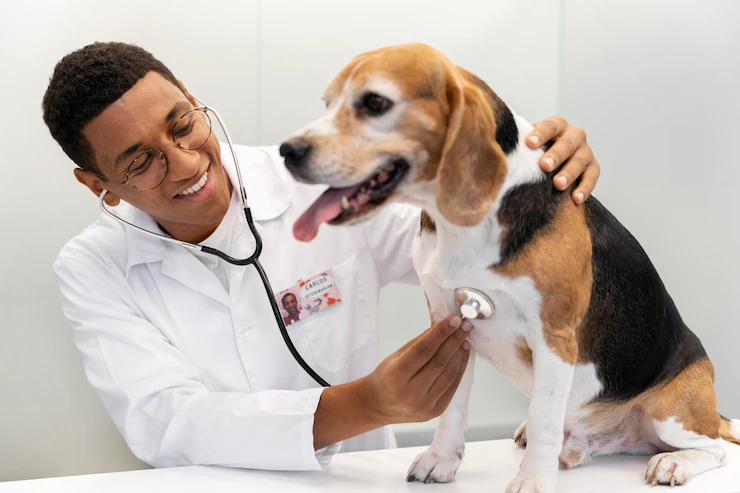Here are 10 things you should know about a veterinarian job:
- Job Description: Veterinarians are medical professionals who diagnose and treat illnesses and injuries in animals. They provide medical care to a wide range of animals, including pets, livestock, zoo animals, and wildlife.
- Education and Training: To become a veterinarian, you need to complete a Doctor of Veterinary Medicine (DVM) degree from an accredited veterinary school. This typically takes four years after completing a bachelor’s degree. Additionally, you need to obtain a license to practice in your jurisdiction.
- Animal Species and Specializations: Veterinarians can work with various animal species or choose to specialize in a particular area. Some common specializations include small animal medicine (dogs, cats), large animal medicine (horses, cows), exotic animal medicine, wildlife medicine, and veterinary surgery, among others.
- Duties and Responsibilities: Veterinarians perform a range of duties, including conducting physical examinations, diagnosing illnesses, performing surgeries, prescribing medications, administering vaccinations, providing preventive care, and educating pet owners on animal health and welfare.
- Work Settings: Veterinarians can work in different settings, such as private clinics, animal hospitals, research laboratories, zoos, farms, and governmental agencies. They may also work in emergency settings, providing critical care to injured or sick animals.
- Long and Irregular Hours: Veterinarians often work long and irregular hours, including evenings, weekends, and holidays. Animal emergencies can happen at any time, requiring veterinarians to be available outside regular working hours.
- Emotional Demands: The job of a veterinarian can be emotionally demanding. They often deal with sick or injured animals, and in some cases, they have to deliver bad news to pet owners. Euthanasia, a difficult decision to end an animal’s suffering, is also a part of their responsibilities.
- Physical Demands: Veterinary work can be physically demanding. Veterinarians may need to lift and restrain animals, perform surgeries, and handle challenging situations. They must have the physical stamina to handle the demands of the job.
- Continuous Learning: Veterinary medicine is an ever-evolving field, and veterinarians need to stay updated with the latest research, advancements, and treatments. Continuing education is essential for maintaining professional competence and keeping abreast of new developments.
- Strong Interpersonal Skills: Veterinarians work closely with pet owners, animal caregivers, and other veterinary professionals. Excellent communication and interpersonal skills are vital for effectively conveying information, understanding clients’ concerns, and collaborating with colleagues to provide the best possible care for animals.
It’s worth noting that while these points provide a general overview, the specifics of a veterinarian’s job can vary depending on factors such as specialization, location, and the type of animals they work with.
Join 'Farmers Mag' WhatsApp Channel
Get the latest Farming news and tips delivered straight to your WhatsApp
CLICK HERE TO JOIN






